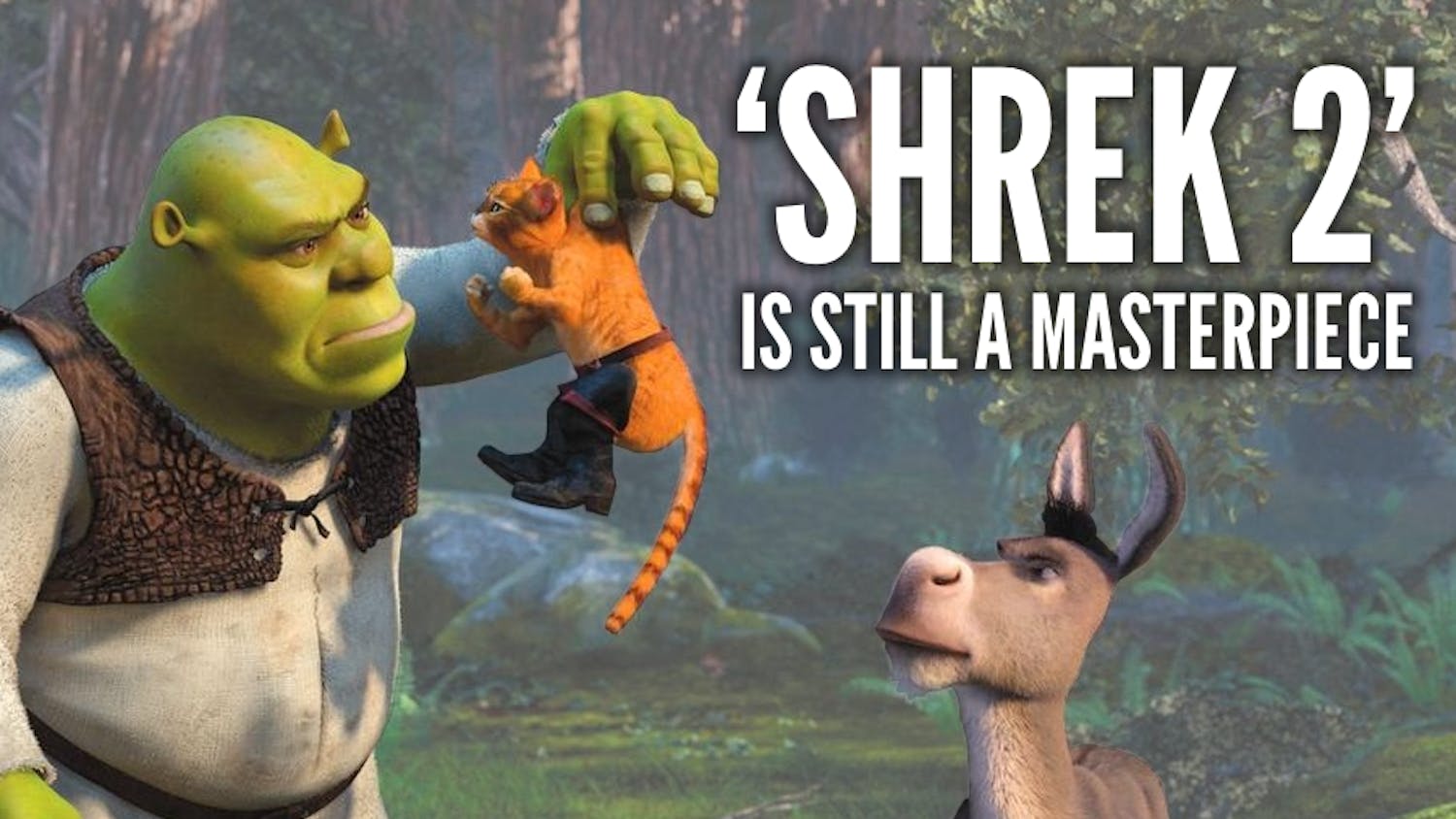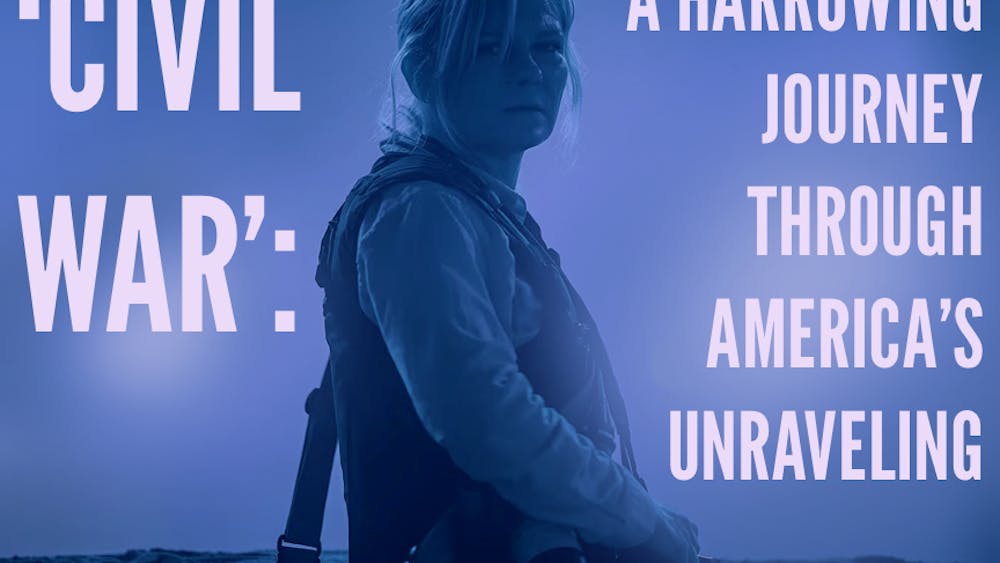Salacious gossip surrounds the life of a man who grew up behind the stone walls of a vast manor. A peer of Prince Charles who met the likes of Laurence Olivier as a child, Charles Duff, professor of London Theatre at the University of Notre Dame's London Programme, has spent his life in a whirlwind of royal company and theatrical prominence.
A man known for his work in places ranging from the Booker T. Washington High School to the Globe Theatre itself, Duff's career path is enough to spark genuine interest in the tales he has to share. But none have quite grabbed headlines like the rumor that has defined him on the international stage — that Charles Duff is the illegitimate child of Princess Margaret, Countess of Snowdon and sister of Queen Elizabeth II.

Duff ‘s childhood was a time of mystery, magic and challenging moments, a topic he plans to explore in his upcoming book currently titled "Sex, Slate, and Snowdon." In this recollection of what took place behind the walls of the Welsh Faenol Estate where he grew up, Duff will reveal secrets he has held onto for years including details about the estranged marriage between his adopted parents, Sir Michael Duff and Lady Caroline Paget.
Sir Michael Duff was the godfather of Princess Margaret's husband, Lord of Snowdon, Antony Armstrong-Jones, a connection that helped fuel the rumors of Charles Duff's connection with the Princess. BBC Two Wales even filmed a documentary about Duff's visit back to his childhood estate called "Faenol — Secrets Behind the Wall," hoping to discover the truth about his parental lineage.
"I did know Princess Margaret because she was married to my father's godson ... and I liked her very much too. I mean, she was a difficult woman and very clever, and very bright, and very complicated, very difficult, very tricky. Great fun ... I saw her in fact not long before she died and she was very sweet to me," Duff said.
Duff remained hesitant to disclose too much information, but did tell of his complicated early life as the only child of two parents who lived apart. Duff's mother sent him to boarding school hoping to give him a more child-friendly atmosphere to grow up in, but Duff said he abhorred the experience.
Duff spent years as a rebellious school child, getting into trouble for things like drinking, lying and being sent home for bad behavior. It was hard for him to connect with those at school and also difficult to feel happy at home, but his parents would not let him drop out. As a last-ditch effort, Duff eventually enrolled in an American school in Tangiers, a country he called "the center of drug culture."
"I longed to smoke dope and you know, be a hippie, but I lived with a very respectable couple on the old mountain, an American man and his English wife. They went to church every Sunday and behaved themselves."

Duff said he avoided the temptations of the decadent lifestyle around him, and went on to school at Bristol where he trained as an actor. He worked at the Royal Academy of Dramatic Arts, did a few fringe films and some small parts on television, then moved on to direct and teach.
He then served as Vice Principal of the London Theatre School, wrote a book called "The Lost Summer: The Heyday of the West End" and also worked as a journalist for many years. Duff wrote a regular column for the U.K. publication "Harpers and Queen," today known as Harper's Bazaar, and also wrote for the "Observer" and the "Spectator."
Duff spent seven years teaching Shakespeare on and off to kids across America at schools ranging from the Booker T. Washington school in Tulsa to high end prep schools like St. Mark's in Dallas. He described going from schools where cops monitored the area to schools where wealthy kids had their own personal bodyguards. His time teaching Americans helped him develop a special love for his neighbors across the pond.
"Really so much which is good in my life has come about through America and through Americans and I've always been, you know, so deeply grateful for that. And now, I have to say that I haven't worked with British people since 1992 or 1994. I've only worked with Americans. I'm the resident sort of British character in American universities. Here [in London], I'm considered a great expert on American education," he said.
Duff's love for teaching originally started out as a passionate hatred for school. The only subject he could really connect with was theatre, something his family had been involved in for generations. When Duff saw "Peter Pan" on stage as a young child, he knew where he belonged.
"I think that the minute I went into the old Scarlet Theatre ... I knew that's where I wanted to spend my life … I think I felt I belonged there and I felt at home there. And it was a world of absolute magic. I loved the curtain going up. I loved the illusion of the theatre and I still do … I love the magic of it. I love the ‘let's pretend.'"
Duff's involvement with the University of Notre Dame began during his turn as a summer course instructor for American academics at the Globe Theatre. He began teaching a one-credit London program course and eventually became the London Theatre professor at Notre Dame, which he still teaches today.
Shakespeare holds a special place in Duff's heart and it's the beauty of Shakespeare's writing that has allowed him to connect with such diverse groups of people.
"He [Shakespeare] knows that there's always humanity in the center of the worst person. And there's always a self-interest and a callousness at the center of the best person. We're a mixture, aren't we? All of us are," Duff said.
Today Duff's life consists mainly of academics and the theatre, but there was a point when he was surrounded by high society members, including the Queen mum and her daughters. So was this man the illegitimate child of Princess Margaret, and thus someone who could stake his claim as a successor to the throne of England?
"I think you can say, you might say, that the Princess Margaret rumor is not true. I think that's enough. That's enough for the moment … I'm not Princess Margaret's son … That documentary was made, BBC Wales made it because they thought they had that scoop. They thought it was going to be the scoop of the year."
Duff said there had always been a rumor that Princess Margaret had an illegitimate child with a man called Group Captain Peter Townsend. If Duff were the princess's son, she would have been 19 when she gave birth and therefore fairly young.
Another man picked up the claim that he was Princess Margaret's son and ran with the theory, eventually taking the case to court. Robert Brown, an accountant from Jersey, brought what the "Telegraph" reported in 2007 to be the first ever court challenge to the practice of "sealing" Royal wills.
Brown asked that the Royal Family's will be opened to see if he had been mentioned as a descendant of Princes Margaret. In England, the Royal wills are the only ones in the country that are not open to public access.
Brown's case was closed when he lost his High Court bid to see the will of the Princess. He tried to pursue a connection with Duff after he learned of the BBC Two Wales documentary, attempting to claim that the two were brothers and they must try to be accepted by the Royal Family. Duff would have none of it.
"I had to wash my hands. He was a real pest and he kept ringing me up and he kept trying to, you know, get me as an ally and try to get me involved in this beastly court case," Duff said.
The question still remained, though, how the BBC came across Duff. When asked, Duff paused for the first time in his 56-minute monologue.
He reminisced on the unlikelihood of his parents' marriage to produce a child given their separate lives and varying preferences. It almost seemed as though Duff was trying to solve the equation aloud as he explained his involvement in the rumor.
"I think that it probably started because nobody saw me ‘til I was about three or four, so there was all this rumor. This baby arrived and this baby was being kept very secret and there was a reason for this baby being kept very secret.
"And one of these which was then fed by journalists in North Wales was that I was a royal baby. But I wasn't and I don't think I was being kept secret. But I was brought up on an estate with a thousand acres. I mean there was a wall encircling a thousand acres. We didn't need to go out. I think it was just- people gossip about strange things.
"I'm not, you know, I'm not Princess Margaret's son. I wish to God I was. I'd make a lot of money out of it."
Duff's assurances that he was not linked to the Princess seemed careful and calculated, but altogether not entirely convincing, though the motives are various and wide-ranging.
Duff did not have a DNA test done and does not plan on pursuing one.
"Obviously I do know that Princess Margaret's children do know who I am. So if I went to Princess Margaret's son David Lindley, I probably would be able to [test his DNA], but I haven't done it and I'm not going to do it because I'm satisfied in my own mind that I'm not Princess Margaret's son."
Duff said though that he would not reveal what made him so sure until what he described as his "tell-a-lot" book was published.
Other rumors surround Duff's parentage, but Duff was equally as mysterious when asked for the details.
"I don't know. they're very interesting. I think, I mean my other rumors were that my father was … various people who were prominent or semi-prominent. And they may be true or they may not be true."
When asked if he knew which rumor was true, Duff said: "Yes, I think I do. I'm not sure actually, but I think I do."
Though he said he would rather remain a man of mystery and not spill his secrets until the publication of his book, he did admit that he spent a lot of time with royalty growing up and attended school with Prince Charles, who is a year older than him. He offered sentiments on the Royal Family, but said he was disillusioned because of his adopted father's obsession with them throughout Duff's life.
"It's a very odd thing to be royal. It's a very odd thing to be considered so special, isn't it?" Duff said.












